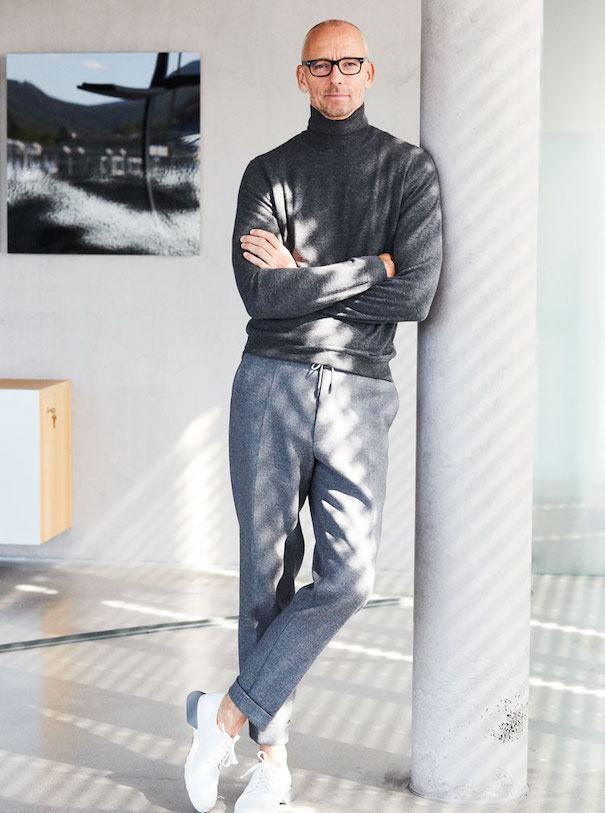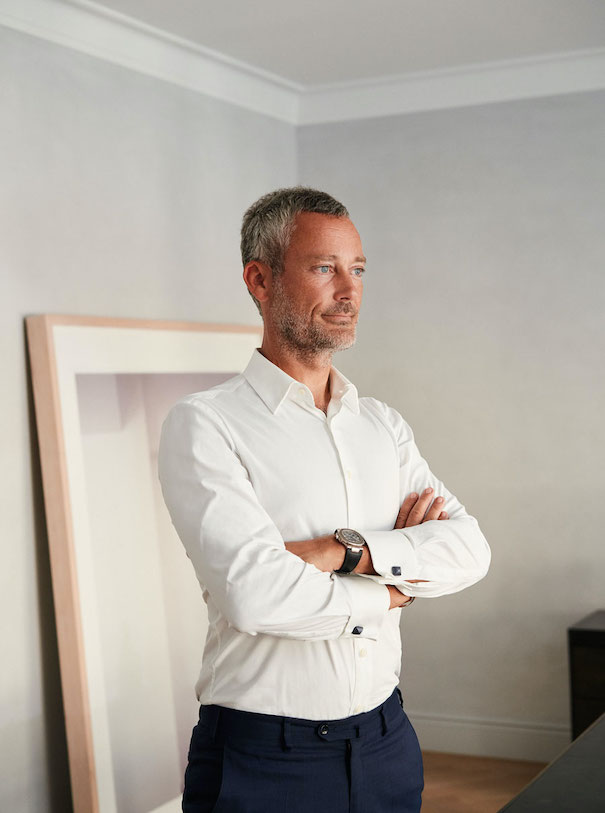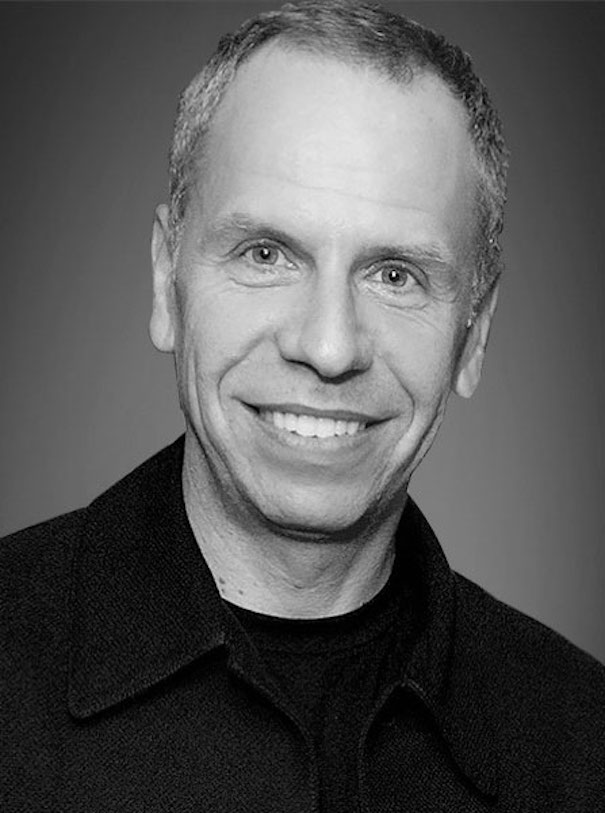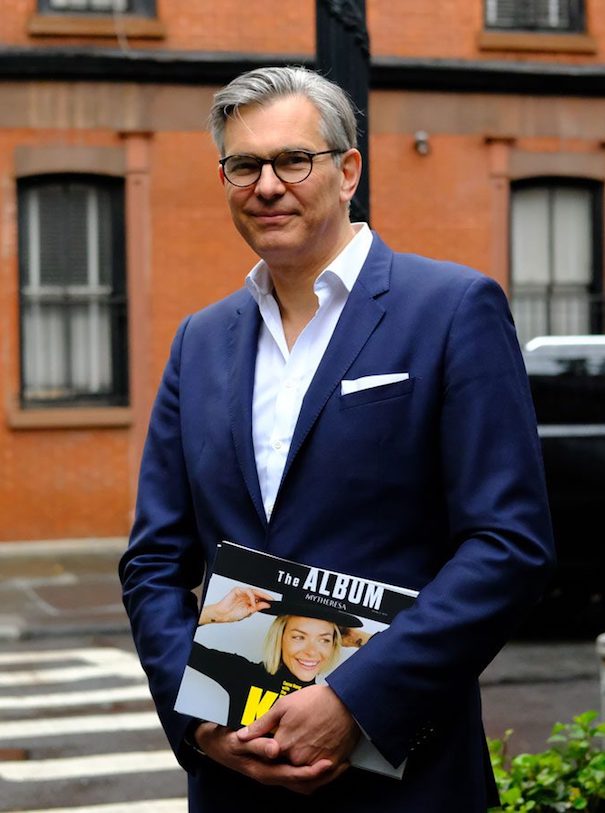Ingo Wilts, Florian Braun, Miles Socha and Michael Kliger
About social media sameness and season silliness
April 29, 2020

With the interview series „Learning from the past“ we try to investigate what has gone wrong in fashion in the past and try to give an outlook of how things will shape up. We asked a group of industry experts – designers, e-tailers, retailers, journalists, photographers and models – three precise questions: What’s been going wrong in fashion? What do you think must change and what do you wish for?
Our deputy editor Nicole Urbschat, chief reporter Silke Wichert, New York contributor Brie Welch and editor Markus Ebner activated their network and all four came to similar conclusions. Read here about the conversations Ebner had so far featuring Hugo Boss Chief Brand Officer Ingo Wilts, Unger and Uzwei CEO Florian Braun, WWD International Editor Miles Socha and Mytheresa CEO Michael Kliger. Ebner also spoke to Alessandro Sartori of Ermenegildo Zegna and Francesco Risso of Marni whose answers will be featured next week.
Four big mistakes crystallized, we call them:
Social Media Sameness – As much as we love the immediacy of Instagram its side effect is that everyone sees the same things on their feeds. New clothes are old within a second or a post.
Cruise Cancer – The last five years have seen the advent of the international fashion circuit cruising all over the planet in May. Rio, Tokyo, Dubai or Westminster Abbey. The big brands flew the inner circle of editors, influencers and buyers all over the planet. The competition of outdoing each other became more important than the actual clothes on the runway. Not forgetting the negative carbon footprint. The trend has grown like a bad cancer.
Markdown Malaise – Selling clothes full price has become nearly impossible as retailers and e-tailers battle each other on who puts things on sale first. As the global product demand (social media sameness) is pretty much about the same items (Balenciaga sneakers, Off-White hoodie, etc.), the strategy is validated by strong sales.
Season Silliness – Going to the men’s shows in Milan in June and January always had a surprising window spectacle to it – winter coats in boiling heat and swimsuits in bone chilling cold.
The conversations with Markus Ebner have been condensed and edited.

Ingo Wilts in Hugo Boss.

Florian Braun, CEO Unger Hamburg
Ingo Wilts, CBO Hugo Boss
1. What’s been going wrong in fashion?
We might have given marketing and big shows too much attention – bigger and bigger, the orchestration and to fly around the world became much more important than what was shown on the catwalk for example.
2. What do you think must change?
We delivered products in the wrong timing and wrong season, no one really wants to buy a heavy winter coat in July. I guess people will be more sensitive and expect to buy what they really want in season, not catching the latest trend anymore.
3. What would you like for the future of your business?
My deep wish is that Hugo Boss will come out of that crisis empowered to reset certain processes and attitudes using the new forms of working.
Regarding the collections – casualization will be stronger with many more people working from home. That means that our collection could be more specific in regards what people need now. We will also dedicate more energy in producing sustainable products.
Florian Braun, CEO Unger
1. What’s been going wrong in fashion?
First of all it’s the uncontrolled flooding with luxury goods of mostly saturated markets. We have to make sure that we can protect the uniqueness of creativity and craftsmanship and not forcing players all over the world to push luxury products into grey markets.
2. What do you think must change?
We most importantly have to make sure that we start treating high-end fashion as something special and desirable again. We as a multibrand retailer have the responsibility to curate our selection in our own way to offer a clearly defined market profile and to work hard towards stronger regional diversity.
3. What would you like for the future of your business?
I want us to be decisive and independent in respect of our approach of defining service culture, and the way we want to shape the upcoming fashion seasons. It is very important for us to gain back territory in the field of independency to make our business even more distinguishable from others. We actually need more flexibility and freedom from the brands to make a unique Unger/Uzwei-like selection to meet our specific customer-needs and to create a distinctive assortment.

Miles Socha, International Editor at WWD

Mytheresa’s CEO Michael Kliger.
Miles Socha, Int. Editor WWD
1. What’s been going wrong in fashion?
From my recent conversations with brand executives, markdowns have risen to the top of the industry agenda. They accelerated during the sub-prime financial crisis and have only gotten worse. Department stores used to be the worst offenders, but now fingers are being pointed at e-tailers for discounting far too soon. Since the COVID-19 crisis has forced a pause, everyone is hoping to seize the moment and hit the reset button and do away with multiple ills: too many collections, deliveries that are out of sync with seasons, and promotions without discipline.
2. What do you think must change?
Fashion would do well to slow down, not only for the sake of the planet, as we all know it’s a polluting industry that produces too much, but also to give everyone more time to appreciate the good that it does. Besides being an economic engine and major employer, fashion is a creative industry with a lot of appeal for young people, and a vibrant facet of the popular culture. In a way, this terrible health crisis has shown that fashion has a heart and can make an important contribution to the well being of society. Look at how many perfume and clothing factories sprang to action to make sanitizing gel, facemasks and medical gowns?
3. What would you like for the future of your business?
Media businesses are an important part of the fashion ecosystem. As a business-to-business title, we’re seeing healthy increases in online readership and paid subscriptions, which proves that there is great curiosity and need for information to operate in this complex industry at a delicate juncture. We all need to change and adapt to new realities, but it would great if all facets of our industry could somehow emerge from this quagmire intact, or stronger.
Michael Kliger, CEO Mytheresa
1. What’s been going wrong in fashion?
I believe the industry over accelerated in terms of trends, deliveries, images, etc. Instant social visibility on a global scale makes every peak much bigger and every low point as well and so there is a risk everybody does the same.
2. What do you think must change?
For sure fashion will benefit from less of the same but rather a much bigger diversity of what brands and retailers present to consumers. Also there should be less focus on just “product marketing” but more attention to design in terms of quality, fabrication, knowledge and personality. This may require slowing down to appreciate things but does not necessarily mean less business.
3. What would you like for the future of your business?
Being and staying relevant for our customers is the most important thing for us.

Oda Jaune on the cover of Mytheresa’s The Album Nr. 4.

